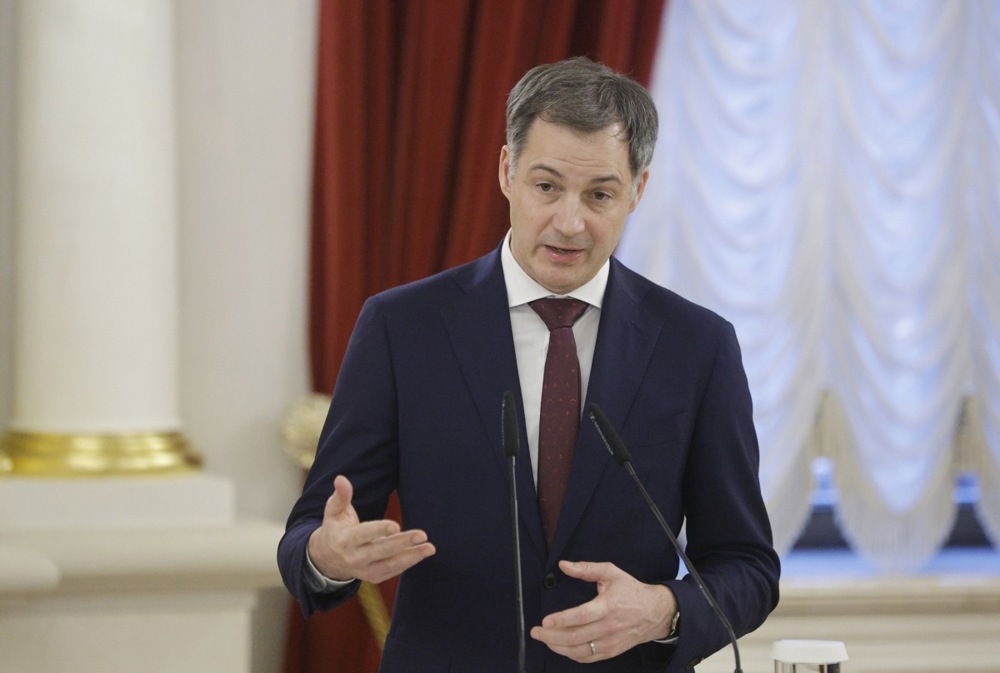Belgium’s dire governmental budget woes are ringing loud alarm bells.
Pierre Wunsch, Governor of the National Bank of Belgium, says the situation seriously threatens the economy. The dismal state of public finances means Belgium needs to save €2.5 billion just to keep the budget deficit as it is.
“Otherwise, a scenario like Greece could loom in the long term,” Wunsch said on March 13 at the presentation of the bank’s annual report.
U leest het goed: Griekenland heeft zijn overheidsfinanciën beter onder controle dan België https://t.co/28EGkq5NvK
Grafiek uit #jaarverslag2023 pic.twitter.com/zSfkg2uyFi— daan killemaes (@DKillemaes) March 13, 2024
Wunsch derided Belgian politicians who, he said, do nothing but “kick the can down the road”.
“Our public finances are not under control. Apparently, politicians find it difficult to set priorities, make clear policy choices and address structural challenges.
“They make promises we cannot afford.
“While other countries are doing better, we are moving in the wrong direction. Measures taken here are increasing the deficit,” he said.
“Political fragmentation doesn’t make it easier – but clear efforts are absolutely necessary.”
Wunsch warned that, on its current trajectory, Belgium will have to make painful cuts to pensions and benefits to remain viable.
“The new government will have to bring bad news,” he said.
“Politicians cannot promise anything to the population at this moment.
“On the contrary.”
He noted there had to be lower State spending and that the government, whenever it is in place, might also have to significantly increase taxes.
“We have squandered our buffer to cope with a future crisis,” Wunsch said.
“So it [the result of that] will come with a high socio-economic cost.”
Belgium has managed to break into the so-called “Club Med” – Mediterranean countries with higher government debt to GDP ratios – and has surpassed Portugal in such terms.@SanderLoones | @wbeke | @WouterVermeersc https://t.co/BbqHF0yA1M
— Brussels Signal (@brusselssignal) January 22, 2024
Wunsch called what he described as the country’s political impotence and the poor state of public finances “the biggest threat to the Belgian economy”.
He added that the economic outlook was far from rosy and that structural reform was needed to get public finances back on track.
With Belgium stacking up deficits, debt is spinning out of control, making it “among the worst countries in Europe”, he said.
Wunsch pointed out that, in 2023, the budget deficit increased while it should have been decreasing with temporary measures against Covid-19 and the energy crisis having expired.
“It indicates that the problem is structural,” he said.
According to another analysis by the National Bank, the Belgian Government is weighed down by fixed expenses such as pensions and personnel costs, which are debilitating financially and are long-term.
Belgium’s overall national debt grew from 104.3 per cent of GDP to 105.2 per cent while interest rates rose.
If current policies continue, Belgium’s deficit will increase by €2.5 billion, or 0.4 per cent of GDP, annually.
“Without change, the next government will be faced with an increasing deficit,” Wunsch predicted.
“And then the costs of ageing – accounting for some 4 per cent of GDP by 2050 – has to be added in.”





